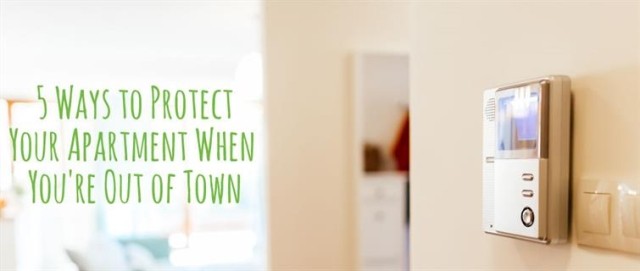Ah, the front door to your apartment! There’s nothing quite like it after a long day at work or school. You know that once you open that door, you can kick off your shoes and sink into your favorite comfy chair. It’s your sanctuary. But what if you can’t get the door open? The lock is stuck. Or you have to wiggle the key just right to get the door open. Maybe it’s time for a new lock. Are there fees attached with getting a new lock? Let’s explore the whens and hows of getting a new lock for your apartment door.
Discuss Your Options with Your Landlord
Don’t change the lock on your own – this could violate your lease agreement as most include a clause stating that the landlord can enter the property with cause (i.e., in an emergency), and if you change the lock without your landlord knowing, you are inhibiting this right. Most lease agreements also include stipulations about making changes to the property – you can’t do this without permission. Some lease agreements forbid changing locks specifically, so read your lease carefully.
Of course, much of this also depends on where you live. For example, some states will allow tenants to change locks without notifying the landlord in certain circumstances. Read your state and local laws along with your lease agreement. Before you dash off to the leasing office to put in a request for a shiny new lock, do you really need one? Let’s review the situations where you likely need a new lock:
- You lost the key and can’t lock your door
- You had a break-in
- Your roommate moved out
- The lock isn’t working properly
Lost Key:
First, don’t panic. Do a thorough search for the missing key. Try to remember the last time you had it. Retrace your steps. If you don’t find the key, then contact your leasing office or landlord. You may have to pay to have a new lock installed, but it’s necessary for safety reasons to install a new lock. Put that new key in a safe place (put a lock on it?) so you don’t lose it again! If you think it may have been stolen – or you know it was stolen – then contact your landlord right away.
After a Break-In:
While it’s unlikely, it does happen. So what should you do if your rental was broken into and the front door is damaged? First, talk to your landlord and discuss your options. In addition to replacing the locks, your landlord may consider extra security measures, such as a deadbolt, sensor lights, or an alarm system. Because your landlord wants you to feel safe in your home, and they want to protect the property, they may be willing to take some extra measures. It is also a good idea to clear any shrubs or foliage around your rental home so it is visible from the street (if you want to remove plants and/or shrubs from the property, be sure to check with your landlord first).
When a Roommate Moves Out:
If your roommate moves out, you might consider having the locks changed. Keep in mind that your landlord is most likely not responsible for changing the locks in this case and you may have to pay to have this done.
The lock isn’t working properly:
A landlord may change the locks between tenants. But if your lock is old, the key doesn’t turn properly, or you are experiencing other issues, it might be time to discuss changing the lock with your landlord. If the lock isn’t functioning properly because of something you did, like breaking your key off in the lock, then you may have to pay to replace the lock.
If you aren’t sure whether or not the lock is working correctly, here’s how to test it:
- Open the door.
- Turn the locking mechanism several times to the lock and unlock position.
- Close the door.
- Unlock and lock the door several more times.
If the lock has the same issue open as it does closed, then the lock is the issue. Sometimes, the mechanism inside the lock can get worn down and the lock needs to be replaced. In this case, the landlord may cover the cost to replace the lock.
Unconventional Keys
Some landlords are moving away from traditional locks for smart locks. These locks are reprogrammable so the landlord doesn’t have to change the locks every time a tenant moves out. The key can be quickly deactivated if you lose it somehow, ensuring safety. For these types of locks, you may have an app on your phone, a keypad on the door, or a key fob.
If you are prone to losing things like your keys (wallet, phone), you might prefer this type of locking system. Next time you are looking for a rental, look for one with a smart lock so you don’t have to worry. (Yes, you could still lose your key fob or phone, but the code can be quickly deactivated and changed.)
What Not To Do
Now that you know what to do, there are a few things you might want to avoid doing. Don’t change the lock without talking to your landlord first. Don’t make copies of your keys unless the landlord gives you permission to do so. Also, don’t ignore a lost key or a broken lock. Even if you are responsible, you need to get the locks changed. If you are concerned about the cost, read over your lease agreement to see if the fees associated with the lock change are stated there. If not, contact your landlord and ask what the fee would be to replace the lock.






